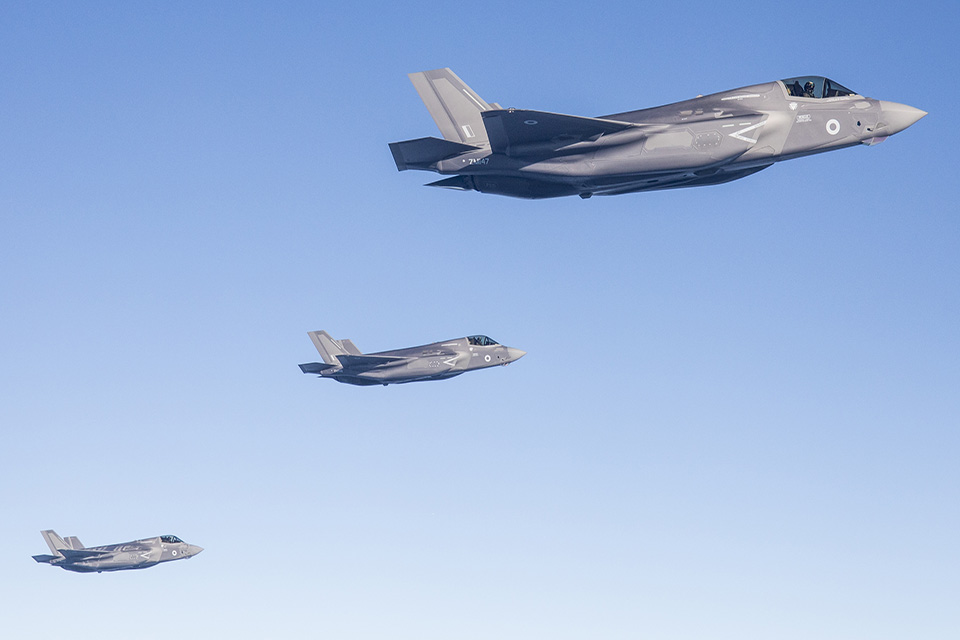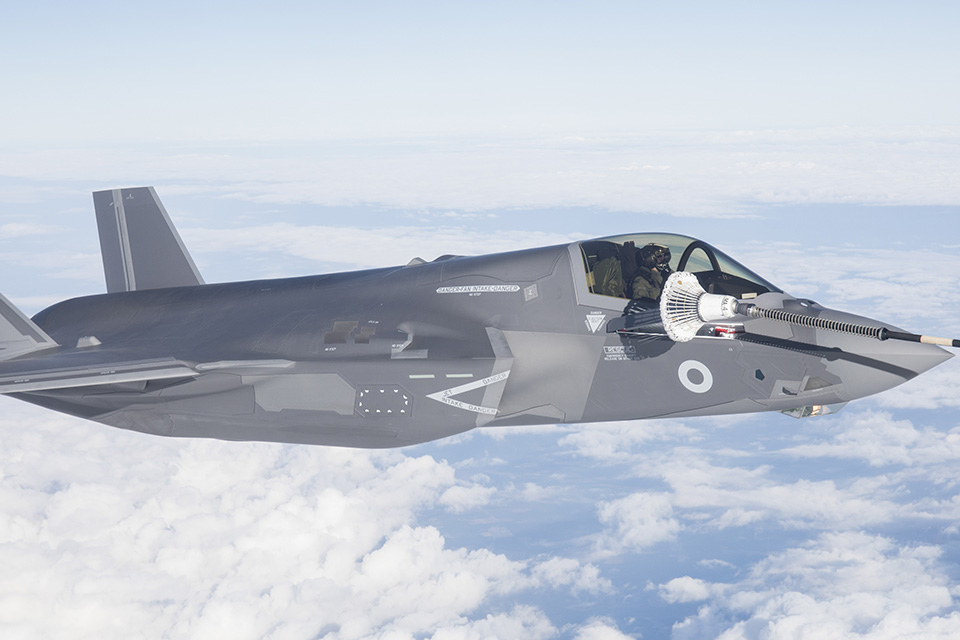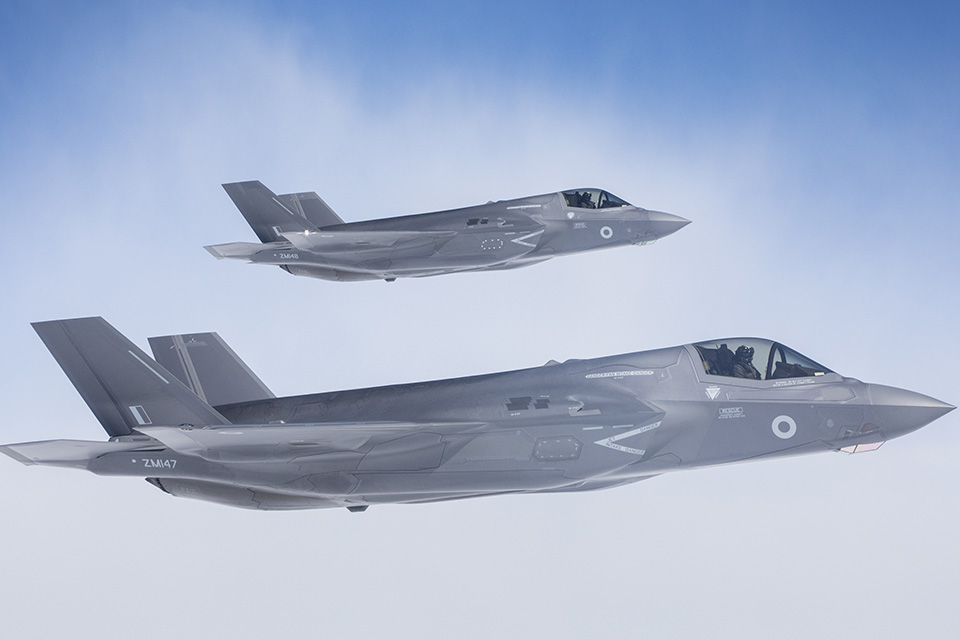It is great to be at my first Shangri-La Dialogue and it is a real pleasure to speak with friends from France and Singapore.
The threats that we’ve been discussing are threats to our nations and the worlds prosperity and security. They come in the form of a variety of regional dangers. Whether from violent extremism that can provide a platform for global terror. Whether from unpredictable state actors like North Korea and the risk of proliferation of nuclear weapons. Or whether from increasingly aggressive states infringing regional access, freedoms and security through coercion and malign influence. We believe nations should follow agreed rules but this is being ignored by some and what this does is it undermines peace and prosperity of all nations.
Which is why we must work together to uphold the rules order that benefits us all, Being resolute, pushing back against the dangers and shoring up our international system. Today we are talking about ‘Raising the Bar’. Not simply reacting to danger, but working strategically, working smarter, working together
This region is home to some of the most technologically advanced nations on earth, with world-class militaries and cutting-edge security capabilities and, we together must aim higher. Joining forces, countries big and small, making our collective effort count for more than the sum of our parts . Upping our game in maritime security, in counter terrorism, in disaster relief, in peacekeeping and in cyber.
For the threats are multiplying. If I had stood on this stage a year ago and said that a chemical weapons attack was going to take place in a small Cathedral City in the United Kingdom, you would have thought I was scaremongering. But, the recent Salisbury incident demonstrates the very real threats we are facing. When Russia used chemical weapons against Great Britain the power of the response was the fact so many nations stood shoulder to shoulder with us. That shows the values and strength of standing together, so Multilateralism is key. It underpins the Rules-Based System and multilateral institutions in this region are increasingly proving their worth.
We can see this in ASEAN, where the region comes together to act with common cause and unity of purpose.
And the ASEAN Defence Ministers play a pivotal role in supporting a collaborative approach, along with their allies and partners – a unity of effort. And, the United Kingdom stands ready to support in any way we can
all the while we maintain our deep-seated commitment to multilateralism, not least through our involvement in the FivePower Defence Arrangements. As part of that commitment I’m delighted to be able to send HMS ARGYLL to take part in exercises with our FPDA friends, such as BERSAMA LIMA later in the year.
As we move towards its 50th anniversary, and as we collectively look to address this more diverse set of threats, we look forward to supporting the modernisation of the FPDA. Broadening its focus to encompass areas such as maritime security and counter terrorism. And we are very keen to work together with friends and partners on a more strategic and multinational approach to the Indian Ocean region – focussing on security, stability and environmental sustainability
We have to make it clear that nations need to play by the rules and that there are consequences for it doing so.
We must speak with one voice. Close coordination and communication has brought Kim Jong-Un back to the negotiating table. Significantly, by working through the United Nations we have brought to bear the combined weight nations to the problem. That’s why I deployed HMS SUTHERLAND and HMS ALBION to this region, to work with our allies to help enforce the UN Security Council resolutions against North Korea, and that desire for closer cooperation was the reason we established our British Defence Staff base here in Singapore. We want to look and see how we can do more with our allies in the region, have a bigger effect and make a bigger difference.
And this brings me to my final point: if we are to maintain the pressure, it’s not enough to speak out. We must stand up for what we believe in; enforcing sanctions, increasing our interoperability, sharing military capability, training and exercising together. For constant vigilance is vital, if we are to root out the scourge of terror, counter malign influence and preserve our Rules-Based Order for the long-term.
That’s why I was so pleased to be able to send three Royal Navy ships to this region, where they have and will work closely with our friends and allies across the region – demonstrating our resolve, alongside our friends, to protect international rights and freedoms.
To that end I’m delighted we are strengthening and deepening our Defence collaboration and relationships across this important region. With Singapore, we are reaffirming our Defence relationship as we head towards the 200th anniversary of the founding of modern Singapore. With Malaysia, we are upgrading our defence relationship, and I look forward to developing this further with my new colleague Mat Sabu. With Japan, we are sending UK Service personnel for a joint land-based exercise later this year – the first time the British Army has exercised on Japanese soil. With Indonesia, where we are increasing our counter terrorism cooperation. With New Zealand, our personnel are working together in the Middle East, Afghanistan and Africa. With Australia, we are working closely on supporting counter terrorism efforts across the region. And these are just a few examples of the tangible cooperation between the United Kingdom and the countries that make up this region.
So, we are living in more uncertain and unpredictable times, but optimism has long been a hallmark of this region and we have not yet reached the summit of our ambitions. By raising the bar of regional co-operation, by standing together, speaking with one voice and standing up for the rules-based order, we can be sure that this region will continue to go from strength to strength as we greet the dawn of an Asian century.


